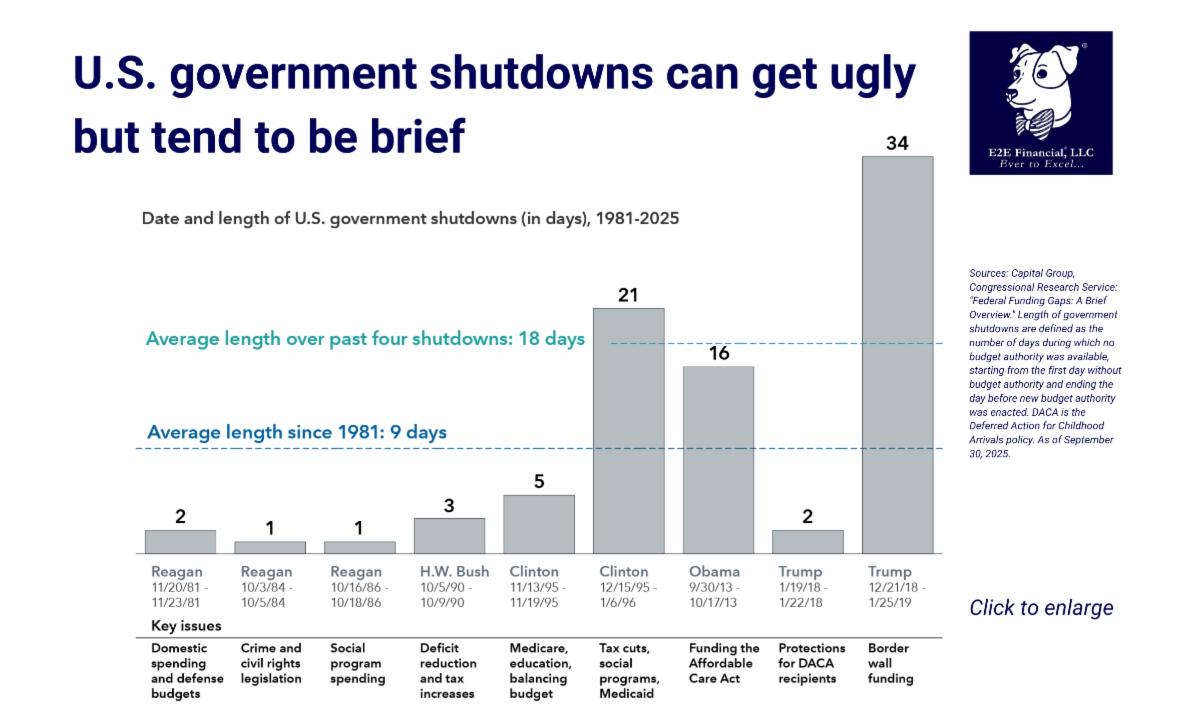
In a year full of uncertainty over tariffs and trade, financial markets took another curveball on Wednesday as the U.S. government shut down amid an ongoing dispute between Republicans and Democrats over spending priorities.
There is no indication how long the impasse might last, but a long history of past government shutdowns suggests that, regardless of length, it will have little impact on the financial markets and the U.S. economy. Even during extended shutdowns of two weeks or longer, stocks and bonds have generally weathered the storm with only small ripple effects, followed by a strong rebound.
Health care spending in the spotlight
The current dispute revolves around a Republican-crafted bill to continue funding the federal government for the next seven weeks while a full-year spending bill is hammered out. Senate Democrats have so far refused to advance the so-called “continuing resolution” unless Republicans agree to extend certain health care subsidies under the Affordable Care Act (ACA) that are due to expire soon and to reverse Medicaid cuts made earlier this year.
Bond investors still anticipating a Fed rate cut
The shutdown arrives at a crucial time for the U.S. economy and for the Fed, which relies on a steady stream of data to set monetary policy. Investors are anticipating a rate cut at the next Fed meeting in late October, unless a surprisingly strong jobs report shifts the outlook. This shutdown could cause delays to the release of key data from the Bureau of Labor Statistics, which would force the Fed to act without that information.
Stock investors taking it in stride
With U.S. stocks hitting record highs in recent weeks, a relatively short government shutdown also isn’t likely to cause much disruption in equity markets, says Mark Casey, a portfolio manager.
“My message for investors is to stay calm and carry on,” says Capital Group political economist Matt Miller, a former senior advisor in the White House Office of Management and Budget. “If history is any guide, the negotiations will be tense, there will be a great deal of political drama, and eventually a compromise will be reached.”
Interested in more details on the government shutdown? Check out the full piece from Capital Group here. Wondering what it could mean for your portfolio? Reach out and we’d be happy to set up a complimentary consultation.
Remember in times like this you don’t have to feel overwhelmed. We’re here to help guide you!
And as always, your weekly market update is here.




